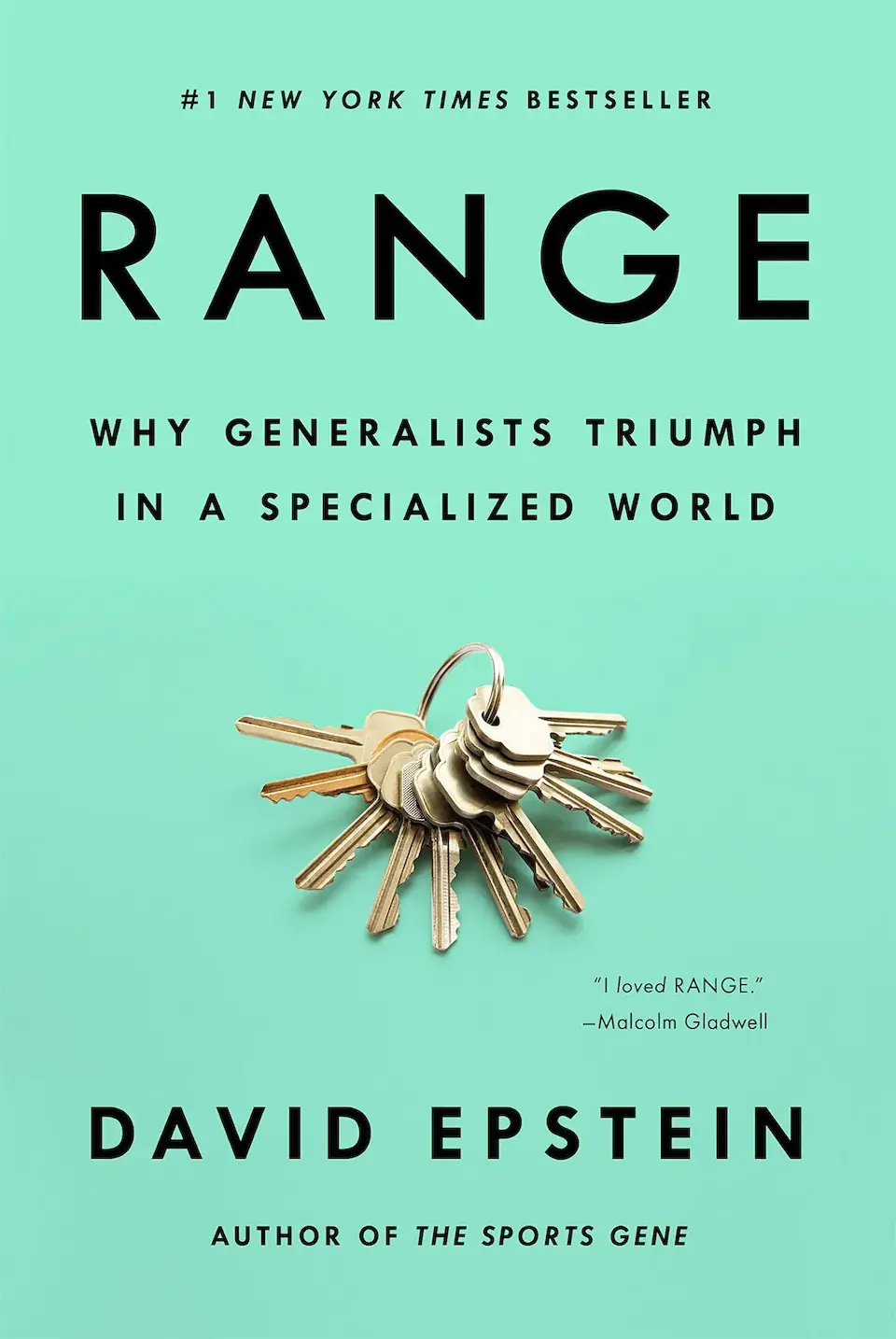Range: Why Generalists Triumph in a Specialized World
by David Epstein
Added:
Feb 21, 2021
Book Description
Plenty of experts argue that anyone who wants to develop a skill, play an instrument, or lead their field should start early, focus intensely, and rack up as many hours of deliberate practice as possible. If you dabble or delay, you’ll never catch up to the people who got a head start. But a closer look at research on the world’s top performers, from professional athletes to Nobel laureates, shows that early specialization is the exception, not the rule.
David Epstein examined the world’s most successful athletes, artists, musicians, inventors, forecasters and scientists. He discovered that in most fields - especially those that are complex and unpredictable - generalists, not specialists, are primed to excel. Generalists often find their path late, and they juggle many interests rather than focusing on one. They’re also more creative, more agile, and able to make connections their more specialized peers can’t see.
Provocative, rigorous, and engrossing, Range makes a compelling case for actively cultivating inefficiency. Failing a test is the best way to learn. Frequent quitters end up with the most fulfilling careers. The most impactful inventors cross domains rather than deepening their knowledge in a single area. As experts silo themselves further while computers master more of the skills once reserved for highly focused humans, people who think broadly and embrace diverse experiences and perspectives will increasingly thrive.
Notes & Highlights
CHAPTER 2: How the Wicked World Was Made
They were perfectly capable of learning from experience, but failed at learning without experience. And that is what a rapidly changing, wicked world demands—conceptual reasoning skills that can connect new ideas and work across contexts. Faced with any problem they had not directly experienced before, the remote villagers were completely lost.
CHAPTER 6: The Trouble with Too Much Grit
That most hierarchical of entities has found success embracing match flexibility. The Officer Career Satisfaction Program was designed so that scholarship-ROTC and West Point graduates can take more control of their own career progression. In return for three additional years of active service, the program increased the number of officers who can choose a branch (infantry, intelligence, engineering, dental, finance, veterinary, communication technology, and many more), or a geographic post. Where dangling money for junior officers failed miserably, facilitating match quality succeeded. In the first four years of the program, four thousand cadets agreed to extend their service commitments in exchange for choice.
The Army also started a process called “talent-based branching” in which it works with cadets and young officers to help them assess their own talents and interests as they progress in training. The idea is to improve their occupational match quality. As Colonel Joanne Moore noted in a presentation in 2017, the jobs that cadets enter the military dreaming of often prove not to be a great fit. They only realize that after trying, so the ability to switch is critical for optimizing match quality.
CHAPTER 7: Flirting with Your Possible Selves
When an editor at another publishing house asked them to write a guide to using lawyers’ services, it led them to found Best Lawyers, which spawned a massive industry of peer-recommendation publications.
The Van Gogh biography by Steven Naifeh and his late partner and coauthor Gregory White Smith is one of the best books I have ever read in any genre.
CHAPTER 10: Fooled by Expertise
Researchers in Canada and the United States began a 2017 study by asking a politically diverse and well-educated group of adults to read arguments confirming their beliefs about controversial issues. When participants were then given a chance to get paid if they read contrary arguments, two-thirds decided they would rather not even look at the counterarguments, never mind seriously entertain them.
Skillful forecasters depart from the problem at hand to consider completely unrelated events with structural commonalities rather than relying on intuition based on personal experience or a single area of expertise.
CHAPTER 11: Learning to Drop Your Familiar Tools
…randomized clinical trials that compared stents with more conservative forms of treatment show that stents for patients with stable chest pain prevent zero heart attacks and extend the lives of patients a grand total of not at all.
The instinct, often well-meaning, to use interventions that seem logical but that have not been shown to help may explain the finding of a 2015 study: patients with heart failure or cardiac arrest were less likely to die if they were admitted during a national cardiology conference, when thousands of top cardiologists were away.
CHAPTER 12: Deliberate Amateurs
“I try to teach people, ‘Don’t end up a clone of your thesis adviser,’” he told me. “Take your skills to a place that’s not doing the same sort of thing. Take your skills and apply them to a new problem, or take your problem and try completely new skills.”
Acknowledgments
As psychologist Howard Gruber wrote, “Ideas are not really lost, they are reactivated when useful.”
This book was the greatest organizational challenge I’ve faced; figuring out how to gather information, what to include, and then where to put it overwhelmed me many times. A quote kept coming to mind: “It’s a little like wrestling a gorilla. You don’t quit when you’re tired, you quit when the gorilla’s tired.”
Get a copy
